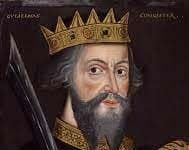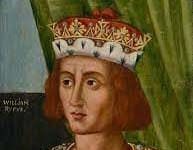Aeschylus was an ancient Greek playwright known as the father of Greek tragedy. His innovations in drama, including the introduction of a second actor and complex plots, transformed Greek theatre. His most famous works include ‘The Oresteia’ and ‘Prometheus Bound’, which explore themes of justice, divine will, and human suffering.
Aeschylus | Brief Biography
Aeschylus was a Greek playwright and poet who lived in the 5th century BCE. He was born in Eleusis, near Athens, in 525 BCE, and was one of the earliest of the great playwrights of ancient Greece. Aeschylus is known as the father of tragedy and is credited with having created the genre of Greek tragedy through his innovative writing and stage techniques.
Aeschylus was the son of Euphorion, a wealthy vineyard owner, and grew up in a time of great cultural and political ferment in Greece. He was said to have been well-educated and was a keen observer of the political and social developments of his time. He was also a talented athlete, and is said to have taken part in the athletic competitions at the Olympic Games.
Aeschylus’ early plays were written in the archaic style of Greek drama, and focused on the mythical stories of the gods and heroes of ancient Greece. However, it was his later works that established him as a master of the genre of tragedy. He is best known for his trilogy of plays known as the Oresteia, which tells the story of the House of Atreus and the cycle of revenge and violence that plagued the family for generations. The Oresteia was performed at the festival of Dionysus in 458 BCE, and was considered a masterpiece of Greek drama.
In addition to his plays, Aeschylus is also known for his contributions to the development of the Greek theater. He introduced the second actor to the stage, which allowed for more complex and nuanced portrayals of characters and their motivations. He also made use of elaborate sets, costumes, and special effects to enhance the theatrical experience.
Aeschylus was a celebrated figure in ancient Greece, and was widely regarded as one of the greatest playwrights of his time. He was awarded first prize for his plays at the City Dionysia, the major festival of drama in Athens, many times throughout his career.
Despite his great success, Aeschylus’ life was not without tragedy. He is said to have lost two of his sons in battle, and he himself was reportedly killed by a tortoise that fell from the sky and struck him on the head.
Today, Aeschylus is remembered as one of the founding figures of Greek drama, and his plays continue to be performed and studied as some of the greatest works of Western literature. His contributions to the development of the Greek theater and the genre of tragedy have had a profound impact on the theatrical tradition, and his works continue to inspire and captivate audiences around the world. 0 0 0.
.
Aeschylus: Comprehensive Biography
Aeschylus was one of the most significant playwrights of ancient Greece, often referred to as the father of Greek tragedy. His innovations in theatre laid the foundation for modern drama, and he is credited with expanding the number of actors in plays and developing more complex storylines. Aeschylus’ works explore profound themes such as justice, divine intervention, and human suffering. He is best known for his trilogy ‘The Oresteia’, which remains one of the most important works in the history of drama.
Early Life and Background
Aeschylus was born around 525/524 BCE in the city of Eleusis, near Athens, during the height of the Archaic period of Greece. His family was wealthy and of noble origin, allowing him access to a good education. Aeschylus lived during a time when Athens was flourishing both politically and culturally, which deeply influenced his works.
In his early years, Aeschylus fought in some of the most important battles of his time, including the Battle of Marathon in 490 BCE and the Battle of Salamis in 480 BCE, where the Greeks successfully defended themselves against the invading Persian forces. His experiences in these battles had a significant impact on his worldview and themes, particularly those relating to conflict and the divine will.
Contribution to Greek Drama
Aeschylus is considered one of the three great tragedians of ancient Greece, alongside Sophocles and Euripides. He transformed Greek drama by introducing new elements to the stage, most notably the addition of a second actor. Prior to Aeschylus, plays typically only had one actor and a chorus, limiting the interaction between characters. By increasing the number of actors, Aeschylus allowed for more complex dialogue and dynamic storytelling.
His plays often focused on the interaction between humans and the gods, exploring themes of justice, power, and destiny. Aeschylus’ works also reflected his belief in divine justice and the idea that suffering was necessary for human progress. His use of symbolism, poetic language, and dramatic structure set new standards for Greek tragedy.
Famous Works
Aeschylus is credited with writing around 70-90 plays, but only seven have survived in their entirety. These plays are known for their grandeur, moral depth, and exploration of human suffering and divine will.
‘The Oresteia’: This is Aeschylus’ most famous work and the only complete trilogy of Greek tragedies that has survived. It consists of three plays: ‘Agamemnon’, ‘The Libation Bearers’, and ‘The Eumenides’. The trilogy follows the story of King Agamemnon’s return from the Trojan War, his murder by his wife Clytemnestra, and the eventual revenge by their son, Orestes. ‘The Oresteia’ deals with themes of justice, vengeance, and the transition from personal revenge to a more organized system of justice.
‘Prometheus Bound’: This play focuses on the myth of Prometheus, who defied Zeus by giving fire to humanity. As punishment, Prometheus is chained to a rock where he endures eternal torment. The play explores themes of rebellion, suffering, and the conflict between individual will and divine authority. It is part of a trilogy, though the other two plays have been lost.
‘The Persians’: One of the oldest surviving Greek tragedies, ‘The Persians’ is unique in that it is based on contemporary events rather than mythological stories. The play depicts the Persian court’s reaction to their defeat by the Greeks at the Battle of Salamis. It offers a rare perspective of the enemy’s suffering and highlights Aeschylus’ ability to humanize all sides of a conflict.
‘Seven Against Thebes’: This play tells the story of the conflict between the sons of Oedipus, Eteocles, and Polynices, who battle for control of the city of Thebes. It focuses on themes of fate, family loyalty, and the inevitability of death.
‘The Suppliants’: This early work of Aeschylus follows the daughters of Danaus, who flee from forced marriages to their Egyptian cousins and seek asylum in Argos. The play deals with themes of protection, the duty of rulers, and the sanctity of supplication.
Innovations and Themes
Aeschylus was known for his groundbreaking contributions to the development of Greek drama. His major innovations included:
Introduction of a Second Actor: By adding a second actor, Aeschylus allowed for direct dialogue between characters, which led to more complex plots and character development.
Development of the Chorus: While earlier plays relied heavily on the chorus to narrate and comment on the action, Aeschylus reduced their role and made them more integral to the plot, interacting with the characters and adding depth to the story.
Thematic Depth: Aeschylus’ plays often deal with profound philosophical questions. His works explore the relationship between humans and the gods, the nature of justice, the consequences of pride, and the inevitability of fate. His belief that suffering was necessary for enlightenment is a recurring theme in his tragedies.
Moral and Religious Focus: Many of Aeschylus’ plays revolve around the moral order of the universe. He emphasized the importance of divine justice and the consequences of defying the gods. His characters often suffer as a result of their hubris (excessive pride) or defiance of divine law.
Influence on Later Drama
Aeschylus’ influence on Greek drama cannot be overstated. His innovations paved the way for later playwrights like Sophocles and Euripides, who built upon his foundation to create more elaborate and nuanced dramas. Aeschylus’ use of spectacle, dramatic tension, and poetic language left a lasting impact on Western theatre.
His trilogy, ‘The Oresteia’, in particular, has been hailed as one of the greatest works in the history of theatre. It not only explores the evolution of justice from a personal act of vengeance to a legal system, but also reflects the political and social changes taking place in Athens during his time.
Later Life and Death
In the later years of his life, Aeschylus continued to write and produce plays, winning several awards at the Dionysia festivals, where playwrights competed by presenting their works. According to historical accounts, he won the first prize in these competitions multiple times.
Aeschylus spent his final years in Sicily, where he had been invited by King Hieron I to produce plays. It is believed that he died around 456 BCE in the city of Gela, Sicily. Legend has it that he died when an eagle dropped a tortoise on his head, mistaking his bald head for a rock. Although this story is likely a myth, it reflects the larger-than-life nature of his reputation.
Legacy
Aeschylus’ contributions to Greek drama have ensured his place as one of the greatest playwrights in history. His works have been studied, adapted, and performed for centuries, continuing to resonate with audiences for their exploration of universal themes such as justice, power, and human suffering.
His influence extended beyond his lifetime, inspiring later generations of playwrights and thinkers. The moral and philosophical depth of his plays has made them timeless, and they remain essential reading for anyone interested in the origins of Western drama and the exploration of human nature.
Conclusion
Aeschylus was a pioneer of Greek tragedy, whose innovations transformed the theatre of his time. Through his plays, he explored the complexities of divine and human justice, the consequences of pride, and the inevitability of suffering. His legacy endures as one of the greatest dramatists of all time, whose works continue to captivate audiences with their timeless themes and profound insights into the human condition. 0 0 0
.
Aeschylus: Data in Brief
- Full Name: Aeschylus
- Born: Circa 525/524 BCE, Eleusis, Greece
- Died: Circa 456/455 BCE, Gela, Sicily
- Occupation: Playwright, Dramatist
- Notable Works: ‘The Oresteia’, ‘Prometheus Bound’, ‘The Persians’, ‘Seven Against Thebes’
- Themes: Justice, divine intervention, human suffering, fate, vengeance
- Contributions: Father of Greek tragedy, introduced the second actor in plays, developed complex dialogue and interaction between characters
Aeschylus: FAQs
1. Who was Aeschylus?
Aeschylus was an ancient Greek playwright and one of the greatest tragedians of classical Athens. He is often considered the father of Greek tragedy due to his innovations in theatre.
2. What is Aeschylus known for?
Aeschylus is best known for introducing the second actor in plays, which allowed for more complex interactions between characters. His plays focus on themes of justice, divine will, and human suffering.
3. What are Aeschylus’ most famous works?
Aeschylus’ most famous works include ‘The Oresteia’ trilogy, ‘Prometheus Bound’, ‘The Persians’, and ‘Seven Against Thebes’. ‘The Oresteia’ is a landmark in Greek tragedy, exploring themes of justice and revenge.
4. What innovations did Aeschylus bring to Greek theatre?
Aeschylus introduced the second actor to Greek theatre, which enabled more intricate dialogues and plot developments. He also expanded the role of the chorus and used dramatic symbolism to enhance storytelling.
5. What is ‘The Oresteia’ about?
‘The Oresteia’ is a trilogy of plays that follows the tragic events of the House of Atreus. It explores themes of justice, vengeance, and the transition from personal revenge to legal justice, focusing on the characters Agamemnon, Clytemnestra, and Orestes.
6. How did Aeschylus influence later playwrights?
Aeschylus laid the foundation for later tragedians like Sophocles and Euripides, who built upon his innovations. His exploration of moral and philosophical themes continues to influence Western drama and literature.
7. What themes did Aeschylus explore in his plays?
Aeschylus’ plays often explore themes such as divine justice, the consequences of pride, human suffering, and the inevitable nature of fate. His works frequently depict the conflict between human will and the gods.
8. How did Aeschylus’ life experiences influence his work?
Aeschylus fought in major battles such as Marathon and Salamis, which deeply influenced his portrayal of war and conflict in his plays. His personal experiences added a layer of realism to his depiction of human suffering and the role of fate.
9. How did Aeschylus die?
Aeschylus is believed to have died around 456/455 BCE in Sicily. According to legend, he died when an eagle dropped a tortoise on his head, mistaking his bald head for a rock. This story, however, is likely apocryphal. 0 0 0
N. B. This article originally belongs to the book, ‘Brief Biographies of Ancient Thinkers and Writers‘ by Menonim Menonimus.
Books of Biography by M. Menonimus:
- The World Writers-Brief Biographies
- Introduction to World Writers
- Introduction to World Personalities
- Love of Reputed Persons ..
Additional Searches:
- Famous Writers
- 9 Greek Philosopher
- Ancient Biography
- Ancient Greek Philosophy
- Japanese Philosophy
- Chinese Philosopher
- Ancient Sanskrit Literature and Writers ….











